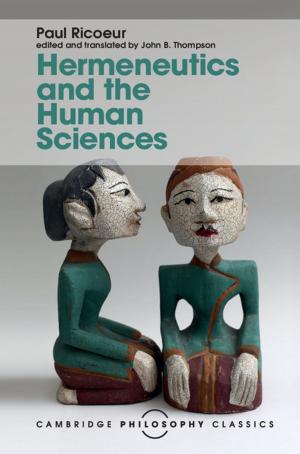From Logos to Trinity
The Evolution of Religious Beliefs from Pythagoras to Tertullian
Nonfiction, Religion & Spirituality, Theology, Philosophy| Author: | Marian Hillar | ISBN: | 9781139209908 |
| Publisher: | Cambridge University Press | Publication: | January 30, 2012 |
| Imprint: | Cambridge University Press | Language: | English |
| Author: | Marian Hillar |
| ISBN: | 9781139209908 |
| Publisher: | Cambridge University Press |
| Publication: | January 30, 2012 |
| Imprint: | Cambridge University Press |
| Language: | English |
This book presents a critical evaluation of the doctrine of the Trinity, tracing its development and investigating the intellectual, philosophical and theological background that shaped this influential doctrine of Christianity. Despite the centrality of Trinitarian thought to Christianity and its importance as one of the fundamental tenets that differentiates Christianity from Judaism and Islam, the doctrine is not fully formulated in the canon of Christian scriptural texts. Instead, it evolved through the conflation of selective pieces of scripture with the philosophical and religious ideas of ancient Hellenistic milieu. Marian Hillar analyzes the development of Trinitarian thought during the formative years of Christianity from its roots in ancient Greek philosophical concepts and religious thinking in the Mediterranean region. He identifies several important sources of Trinitarian thought heretofore largely ignored by scholars, including the Greek middle-Platonic philosophical writings of Numenius and Egyptian metaphysical writings and monuments representing divinity as a triune entity.
This book presents a critical evaluation of the doctrine of the Trinity, tracing its development and investigating the intellectual, philosophical and theological background that shaped this influential doctrine of Christianity. Despite the centrality of Trinitarian thought to Christianity and its importance as one of the fundamental tenets that differentiates Christianity from Judaism and Islam, the doctrine is not fully formulated in the canon of Christian scriptural texts. Instead, it evolved through the conflation of selective pieces of scripture with the philosophical and religious ideas of ancient Hellenistic milieu. Marian Hillar analyzes the development of Trinitarian thought during the formative years of Christianity from its roots in ancient Greek philosophical concepts and religious thinking in the Mediterranean region. He identifies several important sources of Trinitarian thought heretofore largely ignored by scholars, including the Greek middle-Platonic philosophical writings of Numenius and Egyptian metaphysical writings and monuments representing divinity as a triune entity.















